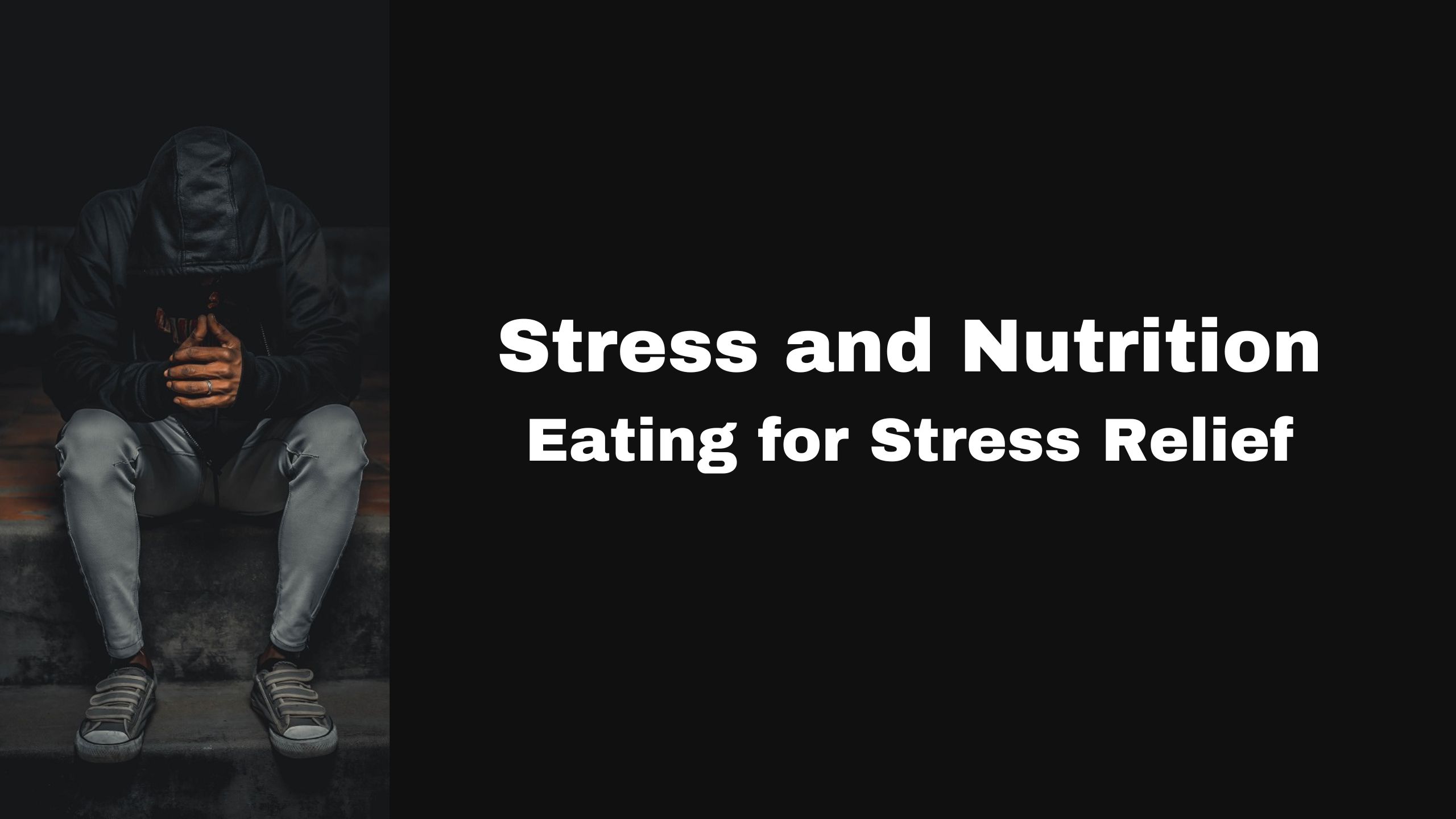Stress and Nutrition: Eating for Stress Relief
In our fast-paced world, stress has become a common companion in our daily lives. It can be triggered by various factors, including work pressures, personal relationships, and financial concerns.
While it’s impossible to eliminate stress entirely, we can manage its effects through various means, including proper nutrition.
The relationship between stress and nutrition is a vital one, as what we eat can significantly influence our body’s response to stress and our ability to cope with it effectively.
The Stress Response
When we encounter a stressful situation, our bodies go into “fight or flight” mode, releasing stress hormones like cortisol and adrenaline. These hormones prepare us to respond to the perceived threat.
While this response can be helpful in dangerous situations, chronic stress and its accompanying hormone production can lead to health issues, such as increased blood pressure, weight gain, and impaired immune function.
Nutrition’s Role in Stress Management
Proper nutrition plays a crucial role in managing stress. A balanced diet can help stabilize blood sugar levels, support brain function, and boost our body’s natural stress-fighting mechanisms. Here are some key dietary tips for eating to alleviate stress:
Whole Grains: Opt for whole grains like brown rice, quinoa, and whole wheat bread over refined grains. Whole grains provide a steady supply of energy and can help stabilize blood sugar levels, preventing mood swings and irritability.
Lean Proteins: Incorporate lean proteins like poultry, fish, tofu, and legumes into your diet. Protein-rich foods contain amino acids that are essential for the production of neurotransmitters like serotonin and dopamine, which play a crucial role in regulating mood.
Fruits and Vegetables: Aim to fill half your plate with colorful fruits and vegetables. They are packed with vitamins, minerals, and antioxidants that combat oxidative stress and support overall well-being.
Healthy Fats: Include sources of healthy fats in your diet, such as avocados, nuts, seeds, and olive oil. These fats are essential for brain health and can help improve cognitive function and mood.
Limit Sugar and Caffeine: Excessive sugar and caffeine intake can lead to energy crashes and exacerbate stress. Cut back on sugary snacks and beverages and consider replacing high-caffeine drinks with herbal teas or water.
Hydration: Dehydration can contribute to stress, so be sure to stay adequately hydrated by drinking enough water throughout the day.
Moderation and Balance: Practice portion control and eat balanced meals. Avoid overindulging in comfort foods high in sugar, salt, or unhealthy fats, as they can lead to mood swings and increased stress.
Omega-3 Fatty Acids: Foods rich in omega-3 fatty acids, such as fatty fish (salmon, mackerel, sardines), flaxseeds, and walnuts, have been shown to reduce inflammation and improve mood.
Probiotics: Gut health is closely connected to mood. Incorporate probiotic-rich foods like yogurt, kefir, and sauerkraut to support a healthy gut microbiome.
Conclusion
While nutrition alone cannot eliminate stress, it can be a powerful tool in managing its effects. By making mindful choices about what we eat, we can support our body’s ability to cope with stress, maintain stable energy levels, and improve our overall well-being.
A diet rich in whole grains, lean proteins, fruits, vegetables, healthy fats, and mindful portion control can go a long way in helping us eat for stress relief.
Additionally, don’t underestimate the importance of staying hydrated and avoiding excessive sugar and caffeine consumption. By nourishing our bodies with the right foods, we can equip ourselves to face life’s challenges with greater resilience and a more balanced outlook.

